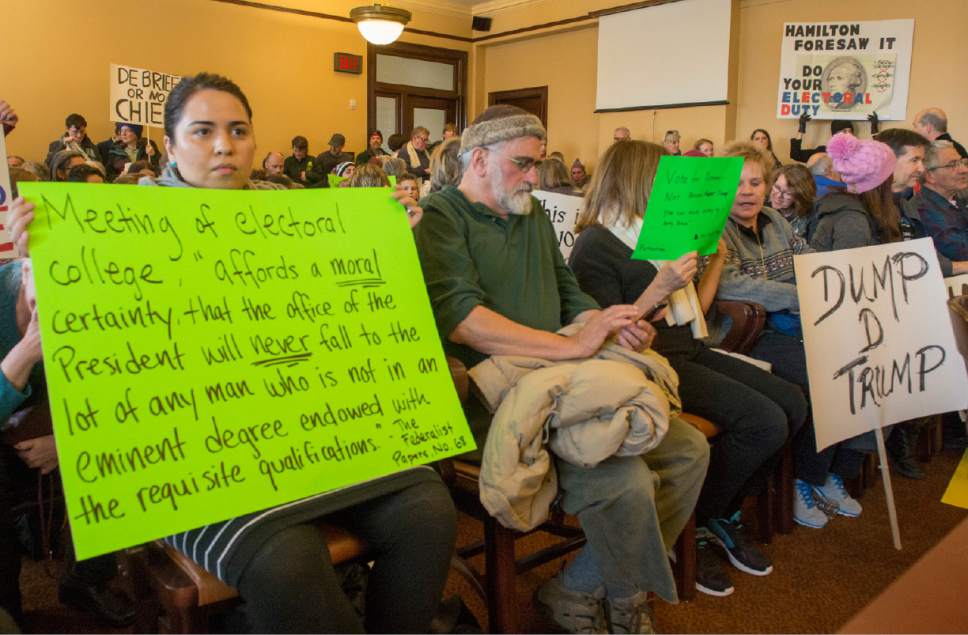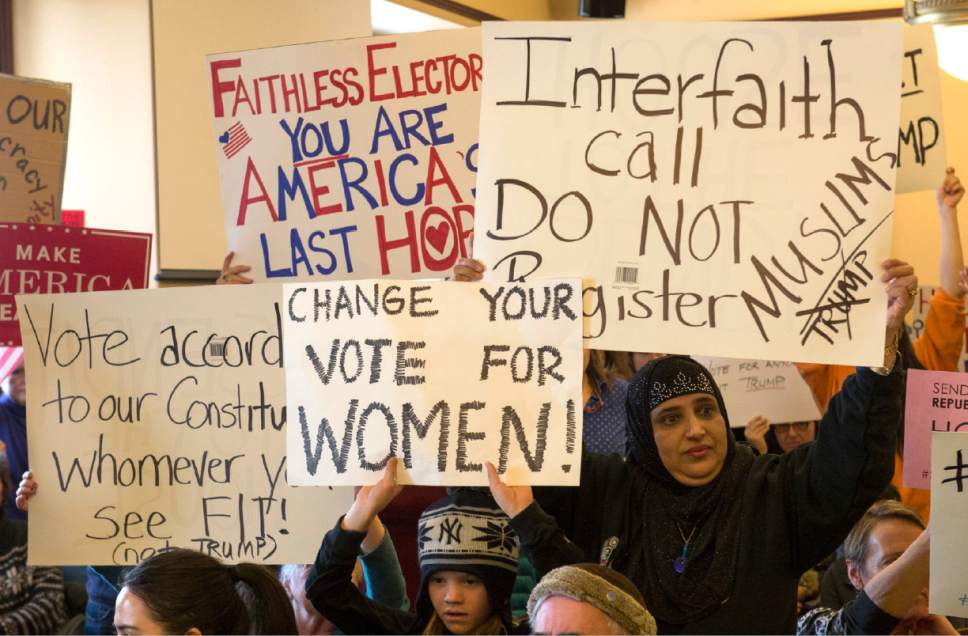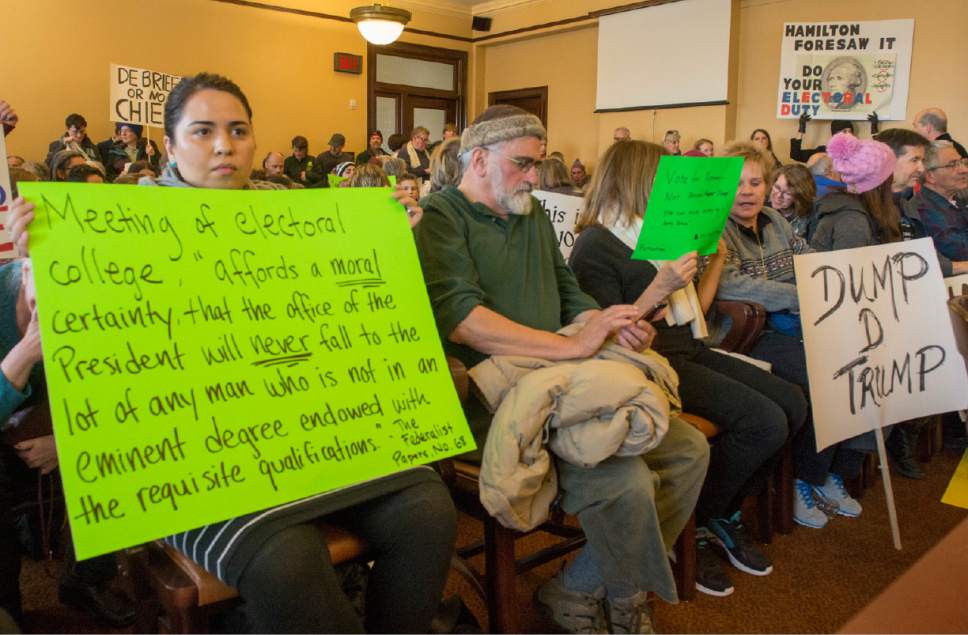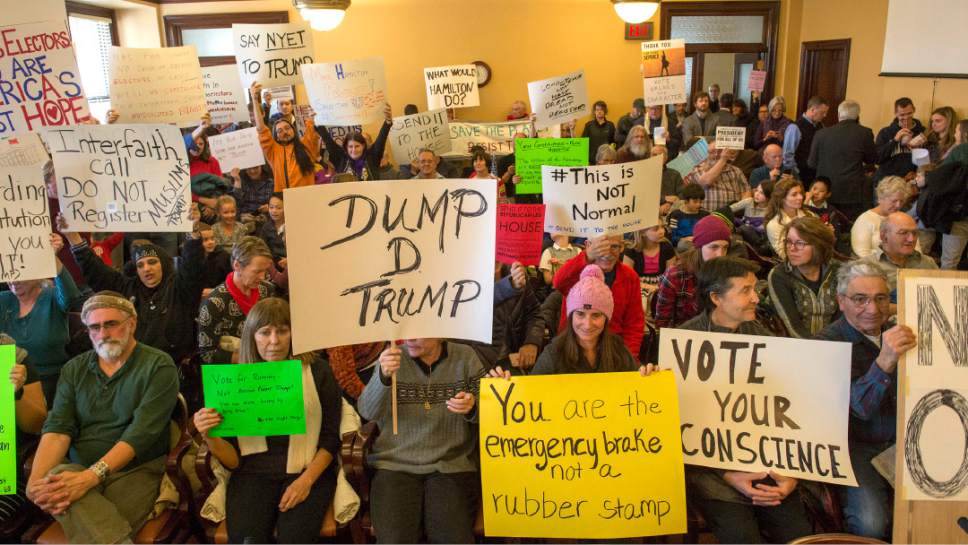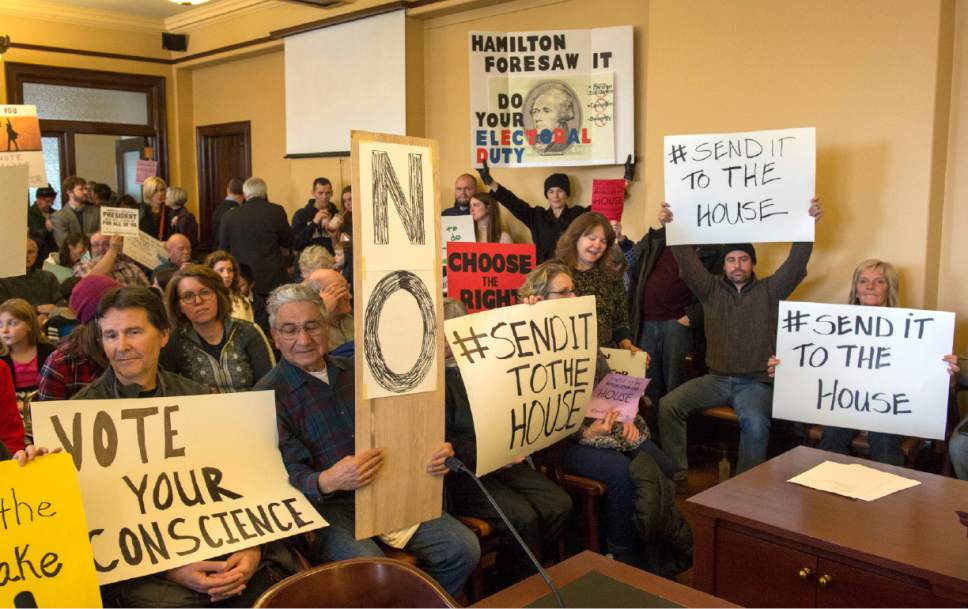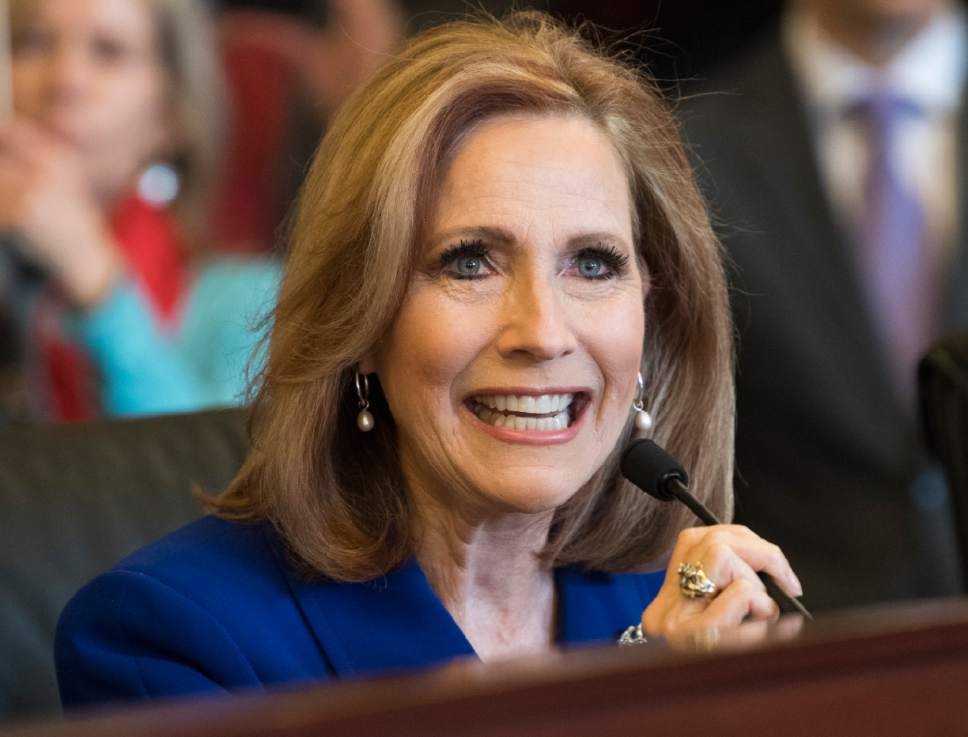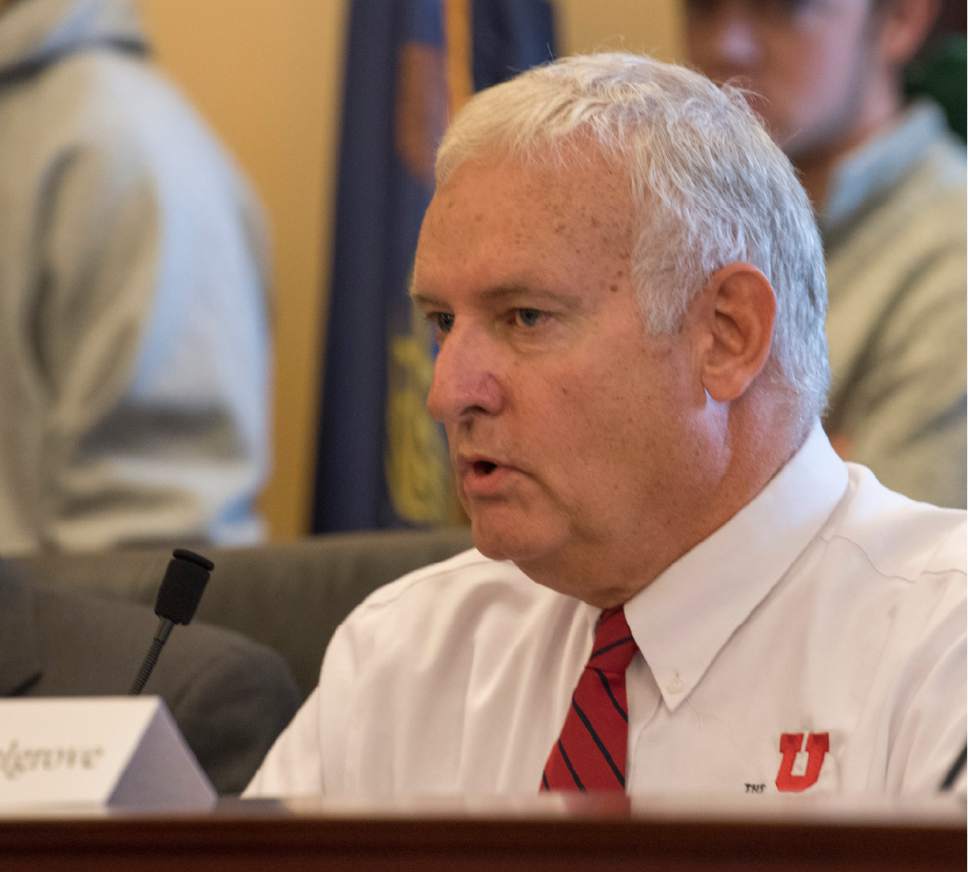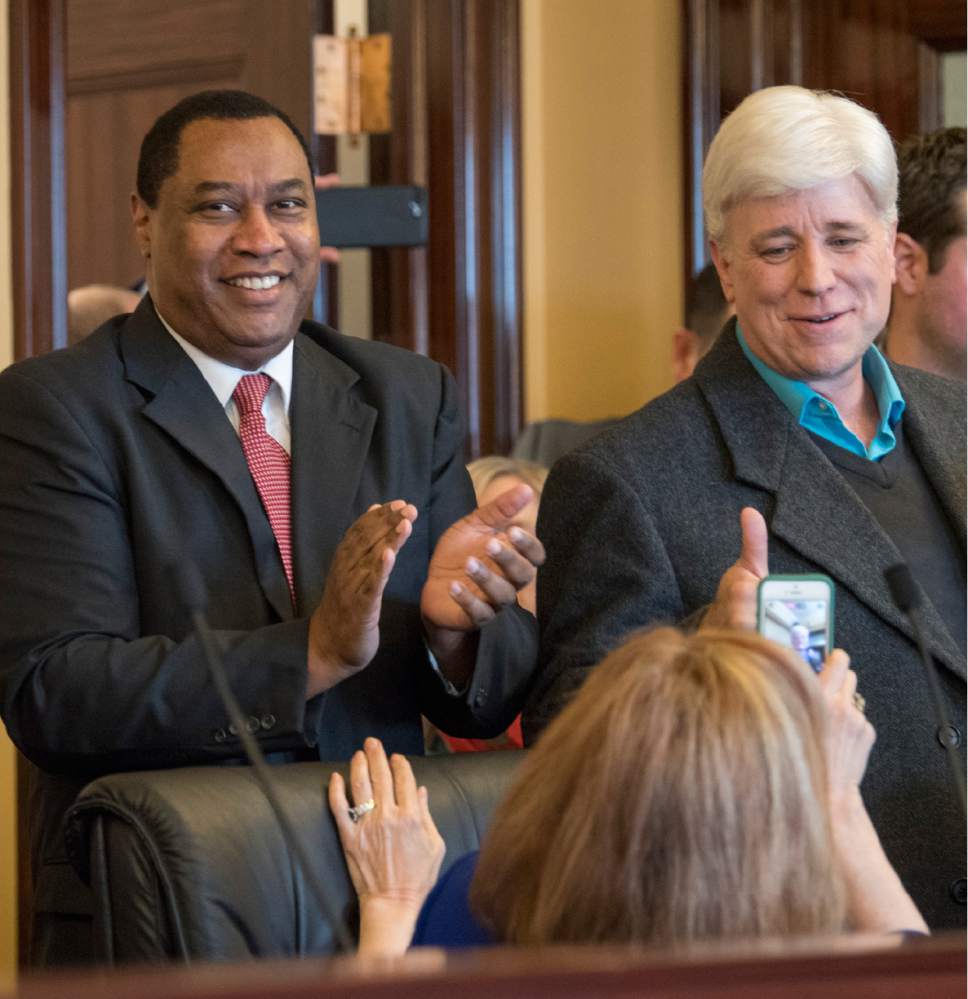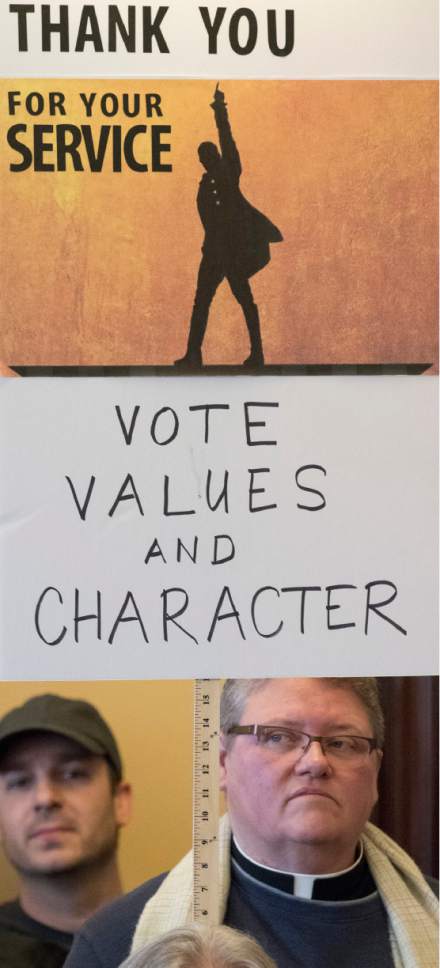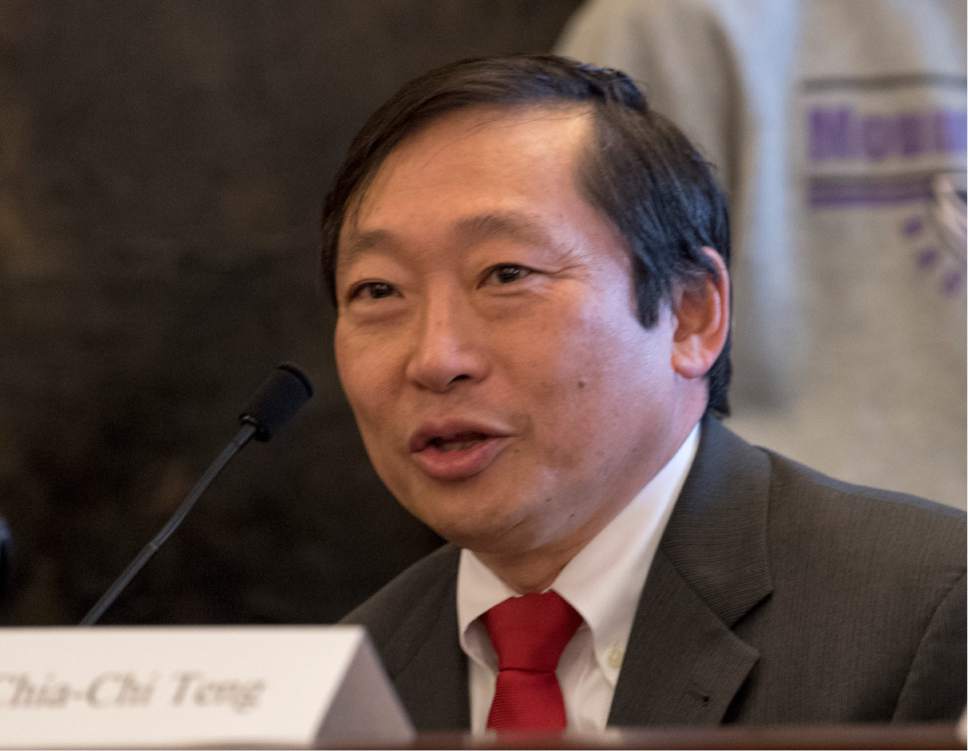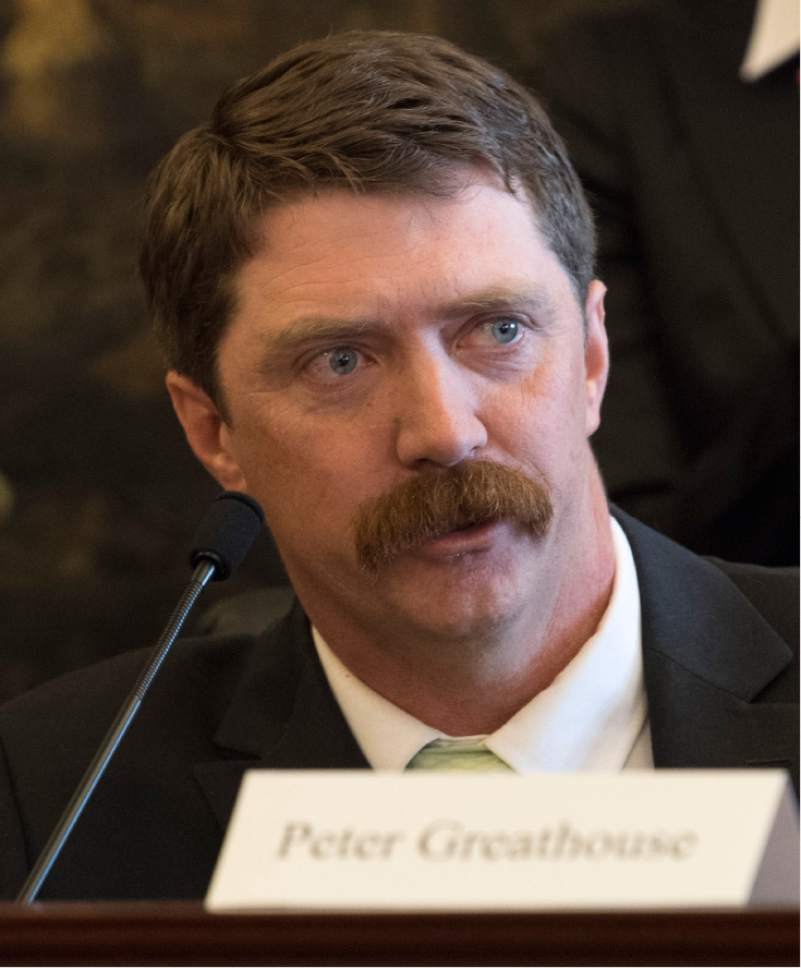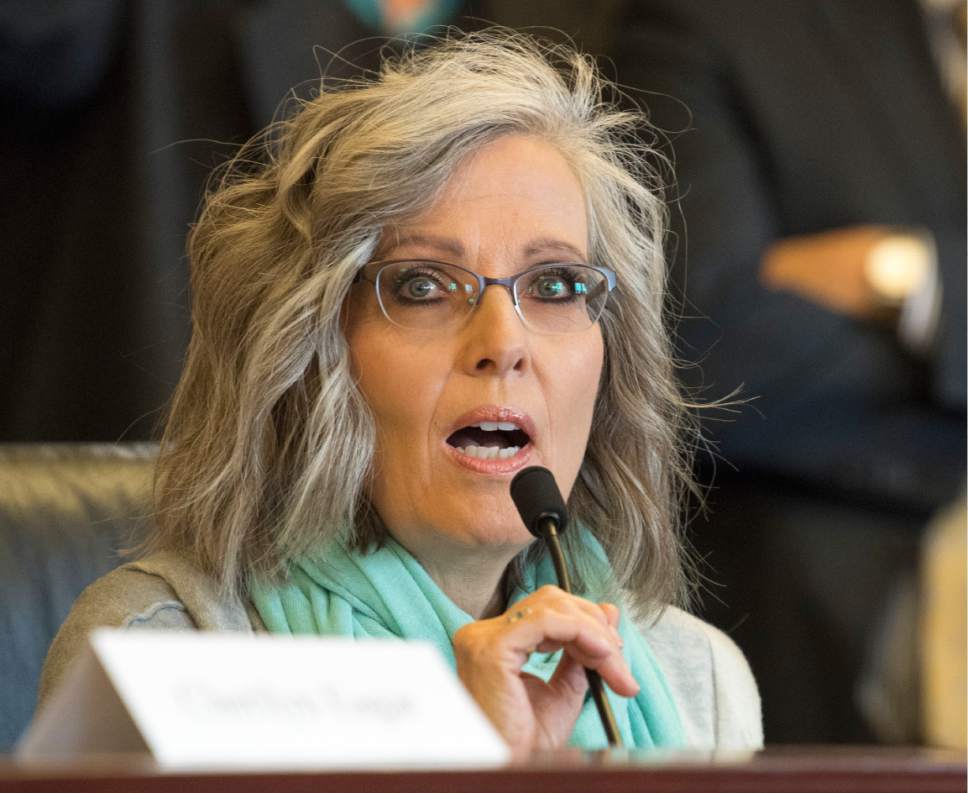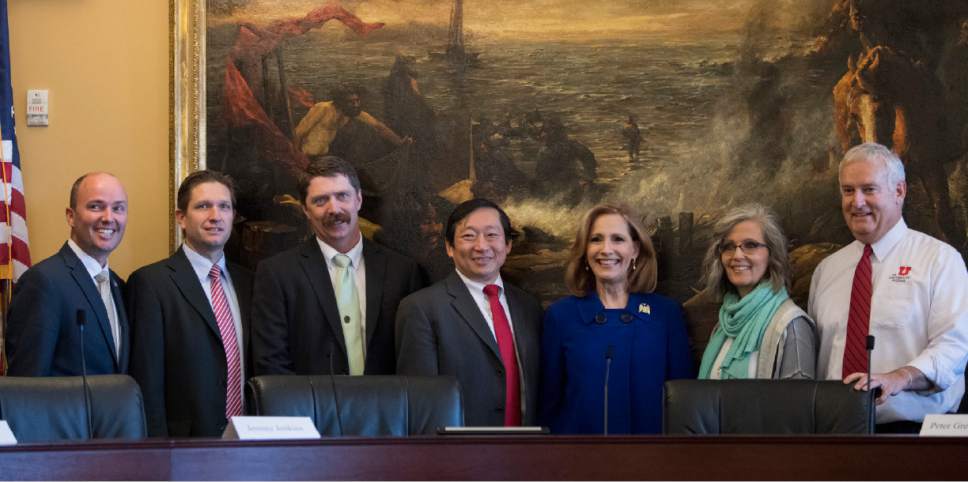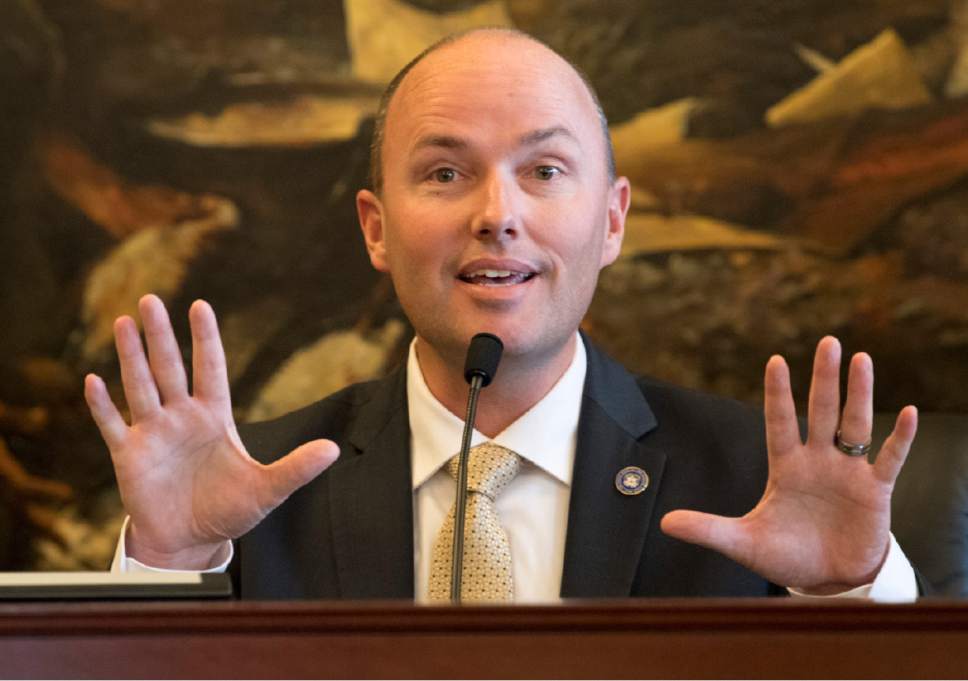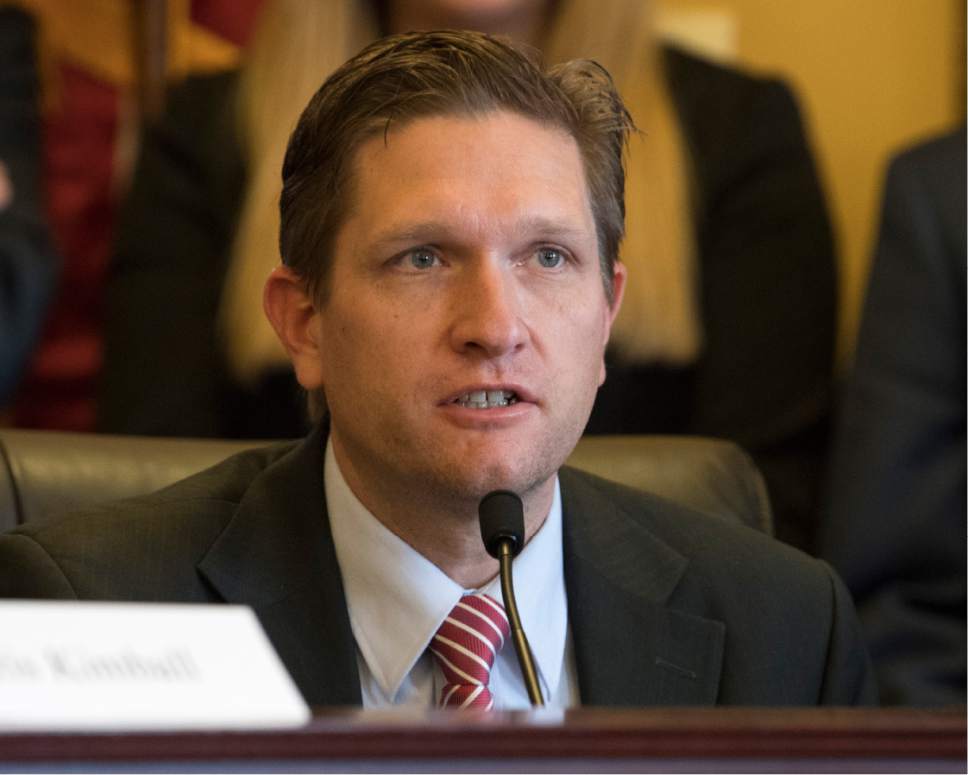This is an archived article that was published on sltrib.com in 2016, and information in the article may be outdated. It is provided only for personal research purposes and may not be reprinted.
The room was overflowing with protesters and shouts of "Treason" and "Vote your conscience!" as Utah's six electors unflinchingly cast their votes for Donald Trump for president — as is required by state law.
It was a microcosm of the national scene where widespread protests and organized efforts to peel electors away from Trump came to little, ensuring Trump will be sworn in as the 45th president on Jan. 20. Texas put the Republican over the top — despite two electors there casting protest votes — by pushing his total past the threshold of 270.
In Utah, elector Cherilyn Bacon Eagar joked afterward that she regretted not having brought her concealed weapon to the event. Eagar said she hadn't received death threats, but her mailbox has been filled with letters from Trump opponents urging her not to vote for the president-elect.
The crowd chanted "The whole world is watching," and waved signs that read "Logically and simply not fit to lead," and "Be careful who you Putin the White House," drowning out Lt. Gov. Spencer Cox as he announced the results.
"Voting was unanimous on both cases, six votes for Donald J. Trump as president and six votes for" Mike Pence as vice president, Cox said.
Indeed, Utah law requires the electors to cast their votes for the winner of the popular vote in the state. If they refuse, they will be deemed a "faithless elector" and replaced.
Trump won 46 percent of the vote in Utah to Hillary Clinton's 27 percent. Independent Evan McMullin picked up 22 percent.
Salt Lake City attorney Chris Wharton had offered to represent any elector who opted to defect and not vote for Trump, but none of Utah's six did so. Wharton contends that the Constitution gives electors the right to select the candidate they deem qualified, but Utah's law requiring electors to vote for the candidate who won the popular vote infringes on that right.
"There's a strong constitutional argument that these restrictions are unconstitutional," Wharton said.
Elector Peter Greathouse considered withdrawing as an elector because he says Trump is "bombastic, over-the-top, he seems to act without thinking sometimes, and I'd prefer somebody who carefully ponders the actions first."
"I didn't imagine this would happen. I didn't imagine I'd be voting for Donald Trump, either," Greathouse said. "I looked at withdrawing but I figured it was pointless. The voice would still be cast. I had a chance to do more and educate people more if I stayed involved."
Greathouse said he plans to work with the Legislature to change the law binding delegates, because he believes it is unconstitutional.
State Sen. Howard Stephenson, R-Draper, is once again planning to sponsor legislation calling for a constitutional amendment abolishing the Electoral College and choosing the president through the winner of the popular vote.
After the votes were cast, several electors stayed to argue with protesters still upset about the outcome, with some of the exchanges growing heated.
Kris Kimball, a Trump elector, said she was disappointed with the lack of decorum that the protesters showed, but said they have a right to voice their opinion.
Elector Jeremy Jenkins brought his children from Logan to watch the spectacle on Monday. He said he never really considered not voting for Trump and, even though he didn't support him in the primaries, he does support him now.
"I didn't support him in the primaries, but I was intrigued by him and I've grown to appreciate where he's coming from and I have high hopes for him. I think he's just what we need at this time in our country," Jenkins said. "I really think this will die down. Maybe not until after the inauguration, but we do have a tradition of transfer of power and this is [part of it]."
Cox joked that four years ago five people showed up to watch the electors vote. He told a group of fourth-grade students from Hawthorne Elementary School who were watching the spectacle that it was "an experience you'll probably never forget."
Utah's vote took place with a mix of protesters and students on hand and it followed an earlier anti-Trump demonstration by about 60 activists.
Melinda McIlwaine, who lives in Emigration Canyon, told the crowd Monday morning that the country should be concerned about how Russian hacking influenced the election.
"I think [the electors] need to hear the results of the investigation," McIlwaine told a reporter a few minutes later.
But most of the speakers cited criticisms of Trump that preceded the Nov. 8 election — from his temperament to his refusal to provide his tax returns, to how his wife was likely once in violation of immigration rules.
Dianne Sanchez Shumway lives in New York, but is in Utah to visit her husband's family for Christmas. She took a turn in front of the crowd to recount how her father once overstayed his visa in the 1970s. She worries her friends who are undocumented immigrants could be deported under the coming Trump administration.
Utah Democratic Party Chairman Peter Corroon called it a "sad day for our state and our nation."
"Today cemented the results of an election process marred by ugliness, interference from foreign governments, and election tactics that have divided our country," Corroon said in a prepared statement.
The 538 Electoral College votes, including Utah's six, will be officially counted in the U.S. House by gathered members of the House and Senate on Jan. 6.
Members can raise objections to any votes at that time. If there are no objections or if the ones raised are resolved, the presidential vote is considered final.
The newly elected president will be sworn into office Jan. 20.
Twitter: @RobertGehrke
— The Associated Press contributed to this report.


